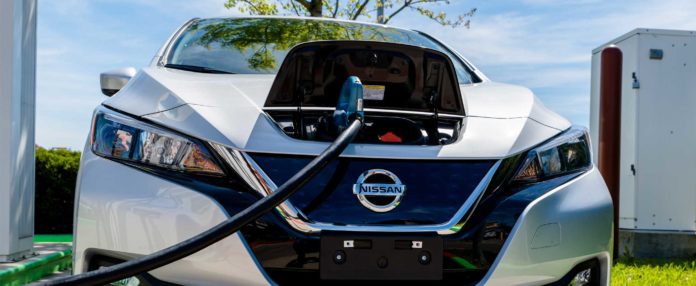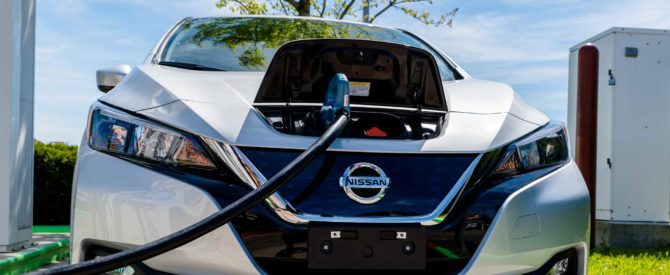
Trends related to electric vehicles accounted for half of the 10 most popular answers in a global survey of tribologists and lubrication engineers about developments likely to draw the industry’s interest in coming years.
Participants also suggested that internal combustion engines still have plenty of room for improved efficiency, according to a report of the survey published recently by the Society of Tribologists and Lubrication Engineers.
The association’s immediate past president, Michael Duncan, said during a recent online webinar that the study – 2020 Report on Emerging Issues and Trends in Tribology and Lubrication Engineering – was a three-year research effort. Duncan said it surveyed nearly a thousand tribologists and lubrication engineers around the world about their experiences and opinions. This was STLE’s third such report, the others having been published in 2017 and 2014.
“Respondents validated that demand for emissions reduction and fuel economy improvement will continue to be areas of great interest for years to come,” Duncan said during a recent webinar on the report. “Transportation trends are predominantly driven by government regulations mandating increased fuel economy and reduced emissions.” Duncan completed his one-year term as STLE earlier this month.
The study asked participants to rate 21 trends and technologies within the transportation application sector in terms of interest they are expected to attract in the future. Five of the 10 most popular selections concerned electric vehicles.
A majority of participants said they believed interest in the advancement of hybrid vehicles, pure electric vehicles and the grid infrastructure would all increase in the next five to 10 years. The report stated that sales of pure electric vehicles remain restrained by limitations on the driving range of electric vehicles as well as production and operational costs. “Over the short term, hybrid vehicles will emerge as the leading challenger to the internal combustion engine because it represents the best of both old and newer technologies,” STLE concluded.
A Ford Motor Co. official acknowledged in the report that the industry is moving towards more electrified powertrains and electric vehicles and concluded that lubricants will remain important. “The lubricant industry will play an important role specifically in the improvement of hybrid and pure electric vehicles where driveline technologies are undergoing a huge change,” Ford Motor Co. Technical Leader Arup Gangopadhyay said. “Electric motors in driveline get very hot and need to be cooled. Automatic transmission fluids provide the cooling today, but there is need and opportunity for improvement.”
The lack of testing methods for lubricants used in electric vehicles is a concern, Peter Lee, staff engineer for tribology at Southwest Research Institute, warns in the report. “In engine and drivetrain lubricants, there are numerous standards but zero for electric vehicles,” Lee noted. “The lubricant industry needs to find a way to develop procedures for evaluating lubricants used in electric vehicles.”
Reduced carbon dioxide emissions is the main behind the promotion of EVs, but the report’s authors argued that EVs lead to significant CO2 emissions if those resulting from battery manufacturing, transportation, charging and disposal are taken into account. “The reason for sustainability concerns with battery electric vehicles is due to the production of the battery,” the report notes.
The report suggests that the tribology and lubrication field will need to assist development of all new vehicle types. “Newer lubricants will be needed to address performance issues with battery electric, hybrid and the next generation of internal combustion engines,” the society noted. “Depending upon the onset of new regulations, engine oils may also need to be reformulated.”
Although the EV market is growing, survey participants still described several technologies and advancements that may provide meaningful gains for fuel efficiency in traditional internal combustion engines. Examples include new light-weight materials, coatings advances, new cylinder head designs and new combustion cycles and engine designs.
On the lubricants side, better coatings will be needed to enable use of lower-viscosity engine oils that the automotive industry now recommends to meet tougher fuel economy guidelines, Thomas Kreis, director of research and development for Geb. Reinfurt GmbH & Co., said in the report.
Duncan noted in the webinar that disruptors such as the Covid-19 pandemic will inevitably play a role in timing and ultimate execution of future trends in the industry, though those trends are generally considered inevitable.
STLE’s report also covers the energy, manufacturing and medical and health application sectors, in addition to several topics related to field issues: workforce issues; research funding; materials cost and availability; safety, the environment and basic human needs; and government regulation. The 2020 report was a three-year research effort to gather opinions and experiences of nearly a thousand tribologists and lubrication engineers who participated as contributors, advisors and editors.
The 71-page “Report on Emerging Issues and Trends in Tribology and Lubrication Engineering” study is free in digital or hard copy to STLE members. For non-members, the cost is $75 for the digital edition and $100 for the print edition, including shipping.
For much deeper information about electric vehicles and their implications for the lubricants industry, see Lubes’n’Greases Perspective on Electric Vehicles at https://www.lubesngreases.com/electric-vehicles/

A Nissan Leaf electric car is plugged in at an EVgo charging station in Pearland, Texas.